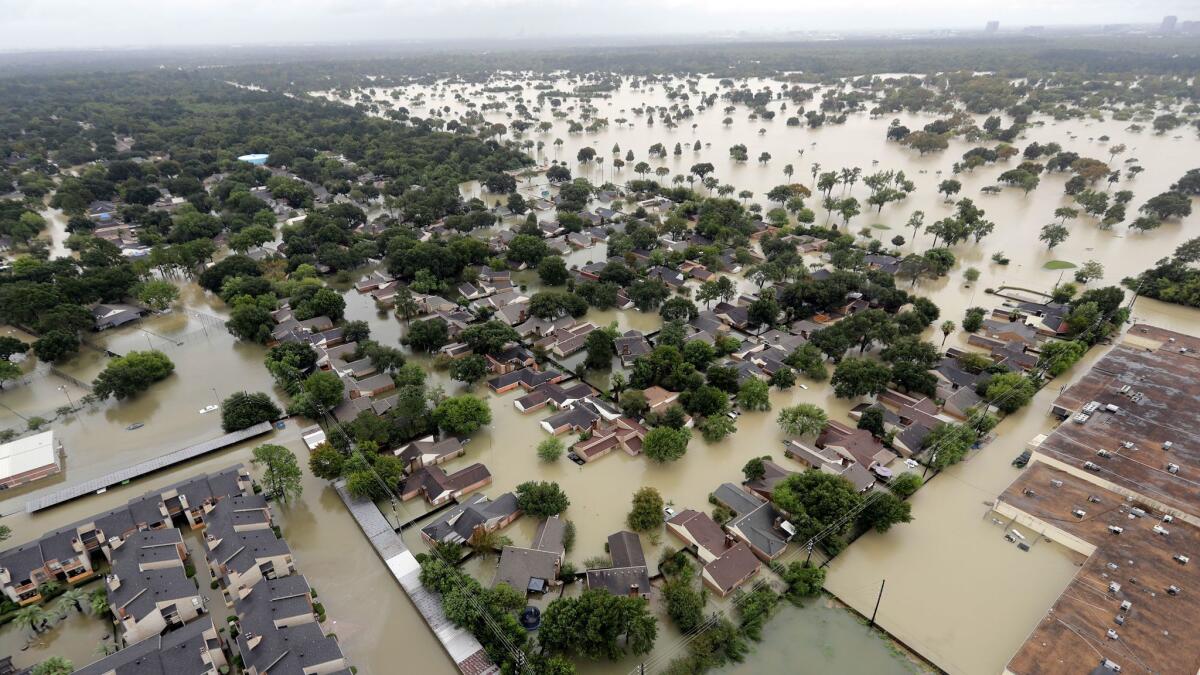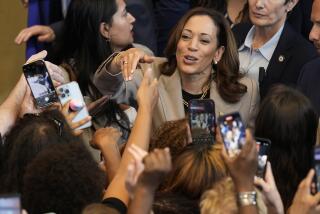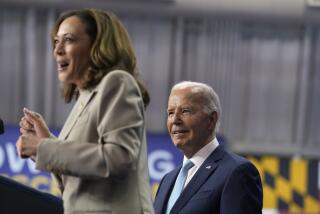Column: Why did Forbes kill a column advocating price-gouging in Houston — after it was published?

- Share via
Conservative economist Tim Worstall posted a very provocative column on Forbes.com Sunday about the dire situation in Houston, arguing in favor of price-gouging.
Using bottled water as a key example, he wrote: “We want people to use less of the scarce resource, we want people to supply more of the scarce resource, allowing the price to rise is the one known way of achieving both those goals. So, why is it that we have these laws against it all?” Citing the threat by Texas Atty. Gen. Ken Paxton to “deal” with price-gougers, he added, “My own version of dealing with price gougers would be to thank them for the good work they’re doing.”
It appears that Worstall’s column was too provocative for Forbes, which customarily has been a great advocate for the free market, as is Worstall. Mysteriously, the column disappeared from the Forbes website sometime Monday. It hasn’t been seen since. Anyone clicking on its original Web address gets an error message.
That’s what editors do, they edit, that’s their point and purpose.
— Economist Tim Worstall, explaining why his piece advocating price-gouging was killed by Forbes
Forbes’ killing of the column produced a minor issue for me, since I had quoted from it in my own column challenging the pro-price gouging viewpoint. Thanks to Google’s habit of taking snapshots of Web pages its search bots have visited and archiving them for posterity, however, Worstall’s original work was preserved. Google’s cache of the column’s first page is here, and page two is here.
Both Worstall and Forbes have been silent as the tomb about what caused his column’s death. There are indications that Forbes took some fire on Twitter for publishing the piece even as the waters were still rising in Houston. But the pushback didn’t seem all that intense, as Twitter uproars go.
When I queried Worstall by email for an explanation of what had happened, he replied, “That’s what editors do, they edit, that’s their point and purpose.”
He added that the Forbes process for outside contributors such as himself was to edit after publication. I observed that it’s extremely unusual to “edit” a piece by killing it entirely without explanation—that typically happens only when it incorporates a gross factual error or something potentially libelous, neither of which seemed to apply here. Worstall replied, “The decisions of the editors are probably best explored by talking to the editors.”
A spokeswoman for the publication wrote me: “Forbes declines comment.”
Worstall, whose personal blog still offers a (broken) link to his Forbes piece, describes himself as a “classical liberal” in terms of economic philosophy, but that’s a historical term for an outlook that wouldn’t be recognized today as “liberal” in any sense of the word. Instead, he lines up with today’s political and economic conservatives. He’s been a supporter and policy drafter of the UK Independence Party, or UKIP, which advocated leaving the European Union during last year’s Brexit vote and became identified with an extreme anti-immigrant, even racist, position.
Worstall has been published in the Guardian and Wall Street Journal, among other publications. The fate of his price-gouging column doesn’t seem to have ended his relationship with Forbes, since he’s posted items on its website since it disappeared, including one praising Illinois Gov. Bruce Rauner for vetoing a $15 minimum wage, and another attacking President Trump for even contemplating a rise in tariffs.
Nor has the debate over price-gouging in disaster zones entirely disappeared from the Forbes website; a short piece explaining the principle, albeit in rather more neutral terms than Worstall’s, appeared Monday and remains up.
Worstall’s opinion piece was forceful, but hardly out of the mainstream of conservative economic thought. It was one of several in support of raising prices after a disaster that appeared in the aftermath of Hurricane Harvey, including one by Mark Perry of the American Enterprise Institute published by Newsweek.
Worstall’s position was cogently argued and standard among this ilk. His point was that price is the most efficient tool we have for balancing supply and demand, especially after a cataclysmic event like Harvey. Anti-gouging laws interfere with that natural process. “Price gouging is the market’s get out of jail free card in the wake of a disaster,” he wrote, “bringing supply and demand into accord--yet we try our damnedest to imprison people for employing our most effective tool. We really need to change the laws here.”
Forbes’ guiding editorial position ever since its founding in 1917 by Hearst business columnist B.C. Forbes has been that the free market will save us all. But what happened to the free market in ideas?
Keep up to date with Michael Hiltzik. Follow @hiltzikm on Twitter, see his Facebook page, or email michael.hiltzik@latimes.com.
Return to Michael Hiltzik’s blog.
MORE FROM MICHAEL HILTZIK
Iowa’s handout to Apple illustrates the folly of corporate welfare deals
More to Read
Inside the business of entertainment
The Wide Shot brings you news, analysis and insights on everything from streaming wars to production — and what it all means for the future.
You may occasionally receive promotional content from the Los Angeles Times.










